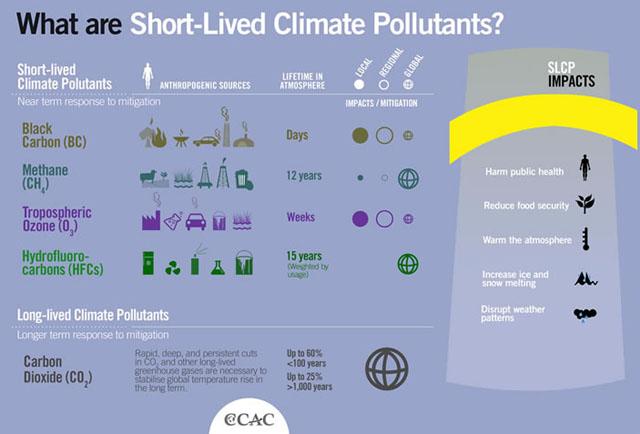You are here
Ministry looks to curb emission of short-lived climate pollutants
By Hana Namrouqa - Mar 11,2015 - Last updated at Mar 11,2015

AMMAN — The Ministry of Environment will start identifying sectors that produce short-lived climate pollutants (SLCPs), under a $123,000 grant agreement signed on Wednesday.
The agreement, signed by the ministry and the United Nations Environment Programme (UNEP), entails setting up programmes and projects that curb the emission of SLPCs, which harm health, agriculture and ecosystems.
These pollutants are also responsible for a substantial fraction of current global climate change and regional climate impacts, according to officials.
Pollutants that are short lived in the atmosphere include black carbon (soot), methane and some hydrofluorocarbons (HFCs) that are produced by various sectors such as energy, industries and solid waste, Environment Minister Taher Shakhshir said on the sidelines of the signing ceremony.
“Under the agreement, a unit specialised in limiting the emission of SLPCs into the air to safeguard public healthwill be set up,” Shakhshir told reporters.
In addition, the grant will assist the ministry in the institutional set up of the unit, he added, underscoring that the agreement is supported by the Climate and Clean Air Coalition to Reduce Short-Lived Climate Pollutants (CCAC), which was established in 2012.
The emission of SLCPs can be reduced via several projects, Shakhshir said, explaining that one of the future projects will be phasing out sulphur in diesel to reduce black carbon emissions from diesel vehicles and engines.
Iyad Abumoghli, representative for the UNEP Regional Office for West Asia, noted that Jordan is the only country in the region that is a member of the CCAC and has taken substantial strides in improving its environment.
The fact that Jordan took the step to establish a unit for curbing the emission of SLCPs will reduce the health, financial and environmental costs incurred by the country and the community, Abumoghli said, adding that SLCPs cause fatal and chronic diseases.
“Although SLCPs stay in the air for a relatively short period compared to other climate pollutants that can stay for 100 years... SLCPs can lead to early death. World Health Organisation reports indicate that 3.5 million people die annually because of air pollution,” he noted.
As part of the agreement, an awareness campaign will be organised to acquaint the public, decision makers and industries with SLCPs, their dangers, and how they can contribute to reducing their emissions, according to the UNEP official.
Related Articles
PARIS — The world must halve single-use plastics and slash throwaway consumption to stem the tide of environmental pollution, according to a
PARIS — Countries’ greenhouse gas-cutting pledges put Earth on track for warming far beyond key limits, potentially up to a catastrophic 2.9
AMMAN-N The International Air Transport Association (IATA) and the United Nations Environment Programme (UNEP) have come together to sign a














